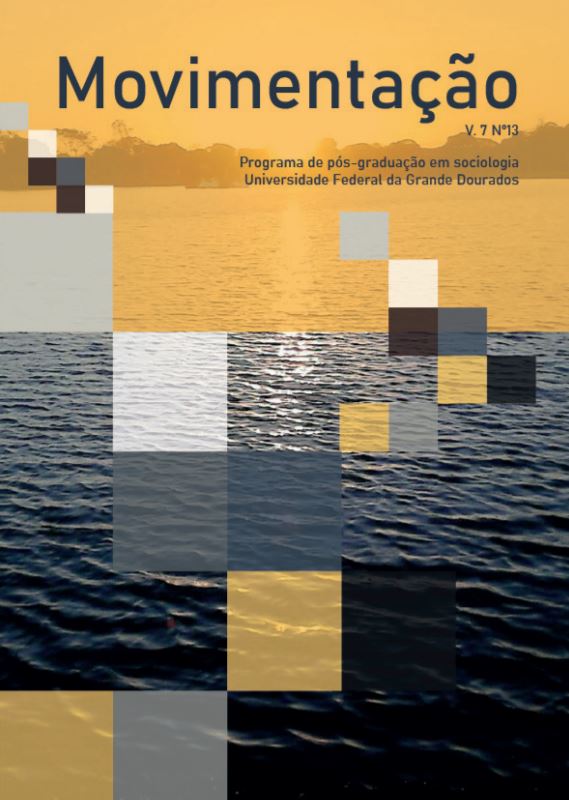From the interpretation of Gilberto Freyre and Roberto Damatta on the modern formation of brazilian society to the sociological criticism of Jessé de Souza
DOI:
https://doi.org/10.30612/mvt.v7i13.10637Keywords:
Casa Grande & Senzala. Culturalist Theories. Jessé de Souza.Abstract
This study approaches the aspects about the problematization of the concept of “national identity” and “social formation” in Gilberto Freyre’s Casa Grande & Senzala, using this as a “methodological bridge” to expose the critical readings of sociologist Jessé de Souza in relation to to “culturalist theories”: social science paradigm where pre-modern analytic categories such as “personalism” and “patrimonialism”, for example, updated by social anthropologist Roberto DaMatta are presented as tools for thinking about contemporary Brazil. By gathering and comparing the authors’ main texts on the issue of “modernization” (DaMatta’s Carnivals, Tricksters, and Heroes and The Selective Modernization of Jesse), it is pointed out that institutions such as the State, civil society, and the market are not. they can be confused or dominated by the “social capital of personal relations”, but understood as fields of social interest.Downloads
References
DAMATTA, Roberto. Relativizando – uma introdução à antropologia social. Rio de Janeiro, 1987.
DAMATTA, Roberto. O que faz o brasil, Brasil. Rio de Janeiro, 1994.
DAMATTA, Roberto. O que é Brasil. Rio de Janeiro: ROCCO, 2004.
DAMATTA, Roberto. Carnavais, malandros e heróis: para uma sociologia do dilema brasileiro. 6º Ed. Rio de Janeiro, ROCCO, 1997.
FREYRE, Gilberto. Sobrados e Mocambos – decadência do patriarcado rural e desenvolvimento do urbano. 15° ed. Global. São Paulo, 2004.
IANNI, Octávio. A ideia de Brasil moderno. São Paulo, Ed. Brasiliense,1994.
SOUZA, Jessé. A modernização seletiva – uma interpretação do dilema brasileiro. São Paulo, Ed. UnB, 2000.
SOUZA, Jessé. A ralé brasileira – quem é e como vive. Belo Horizonte, Ed. UFMG, 2009.
SOUZA, Jessé. A invisibilidade da desigualdade brasileira. Belo Horizonte: Ed. UFMG, 2006.
SOUZA, Jessé. A tolice da inteligência brasileira: ou como o país se deixa manipular pela elite. São Paulo, Ed. LeYa, 2015.
SOUZA, Jessé. A elite do atraso – da escravidão à lava jato. Rio de Janeiro, Ed. LeYa, 2017.
SOUZA, Jessé. A sociologia dual de Roberto Da Matta: descobrindo nossos mistérios ou sistematizando nossos auto-enganos? RBCS vol. 16 n° 45, fevereiro/2001.
SCHWARCZ, Lilia Moritz. O espetáculo das raças: cientistas, instituições e questão racial no Brasil - 1870-1930. São Paulo: Companhia das Letras, 1993.
ORTIZ, Renato. Cultura brasileira e identidade nacional. São Paulo, Ed. Brasiliense, 2006.
Downloads
Published
How to Cite
Issue
Section
License
Authors must accept the publication rules when submitting the journal, as well as agree to the following terms:
(a) The Editorial Board reserves the right to make changes to the Portuguese language in the originals to maintain the cultured standard of the language, while respecting the style of the authors.
(b) Authors retain the copyright and grant the journal the right to first publication, with the work simultaneously licensed under the Attribution-NonCommercial-ShareAlike 3.0 Brazil (CC BY-NC-SA 3.0 BR) that allows: Share - copy and redistribute the material in any medium or format and Adapt - remix, transform, and create from the material. CC BY-NC-SA 3.0 BR considers the following terms:
- Attribution - You must give the appropriate credit, provide a link to the license and indicate whether changes have been made. You must do so under any reasonable circumstances, but in no way that would suggest that the licensor supports you or your use.
- NonCommercial - You may not use the material for commercial purposes.
- Sharing - If you remix, transform, or create from material, you must distribute your contributions under the same license as the original.
- No additional restrictions - You may not apply legal terms or technological measures that legally restrict others from doing anything that the license permits.
(c) After publication, authors are allowed and encouraged to publish and distribute their work online - in institutional repositories, personal page, social network or other scientific dissemination sites, as long as the publication is not for commercial purposes.



